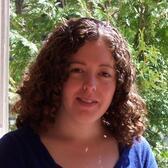Next Year in Jerusalem
Last year, when I sang “L’shana haba’a b’Yerushalayim” (Next year in Jerusalem) at the Seder table, I meant it literally: As a first-year rabbinical student, I had the opportunity to spend this year studying at the Conservative Yeshiva in Israel. It was to be my first time in Israel as an adult, and I was looking forward not just to learning Talmud, but also to forming my own relationship with the country. This year, however, the phrase feels strange in my mouth—I’m saying “Next year in Jerusalem” while sitting at a Seder table in Jerusalem itself, but in just a few weeks, the semester will end and I’ll come home to Boston, with no idea of when I might return. Last year, “L’shana haba’a b’Yerushalayim” felt like an affirmation of this great adventure I was embarking on. Saying it this year, with my flight home already booked, feels like a meaningless social noise. It feels like a lie.
I couldn’t have asked for a better year in Jerusalem. In talking about this year, I often compare it to drinking from a fire hose, trying to take in something too large and powerful for me to absorb. My studies are usually 11 hours a day, five days a week, and then on weekends I try both to recuperate from all that learning and see some glimpse of the world outside the classroom. I’ve done so much that I hoped to do: improved my Hebrew, led Friday night services, learned to navigate the Talmud. I’ve hiked through the desert and seen the Milky Way, found a favorite schwarma place and a favorite coffeehouse, spent significant time and energy fighting for gender equality, religious pluralism, and Palestinian rights.
I’ve also had experiences I didn’t anticipate, made choices I wouldn’t have predicted. I wrote new prayers for people with disabilities and chronic illness. I forged what I hope are lifelong friendships with people whose lives and Judaisms are very different from my own. I became part of the design team to create Yom HaTzedek, a new Jewish holiday committed to social justice.
But despite all I’ve seen and done and learned, I’ve come to call this time Ne’ila, after the closing service on Yom Kippur, in recognition of all the things I’m still trying to get in under the wire before I go. I want to visit Tsfat and Masada. I want to find a particular out-of-print book that I’ve scoured a dozen bookstores for without success. I want to look up childhood friends I haven’t spoken to in decades. And I’m having to come to terms with the fact that not all of these things are going to happen, at least not on this trip.
Honestly, growing up after the foundation of the State of Israel, I’ve always felt weird about saying “L’shana haba’a b’Yerushalayim.” What exactly, as a diaspora Jew, am I wishing for? To live in Israel, when that’s not a choice I’ve actually made for my life? To visit again? To build a messianic-era Jerusalem that bears little resemblance to the beautiful, maddening city where I’ve lived this past year?
Instead, I’m trying to have the kavannah, the intention, that any experience of Jerusalem or of Israel as a whole is going to be incomplete and imperfect. There is always going to be too much for one visit, one lifetime. There are always going to be things left undone, missed connections and opportunities, room for repair. Saying “L’shana haba’a b’Yerushalayim,” a phrase that often ends Seders, can act as a recognition that there’s always something better we can reach for, whether next year is physically in Jerusalem or somewhere else entirely.







